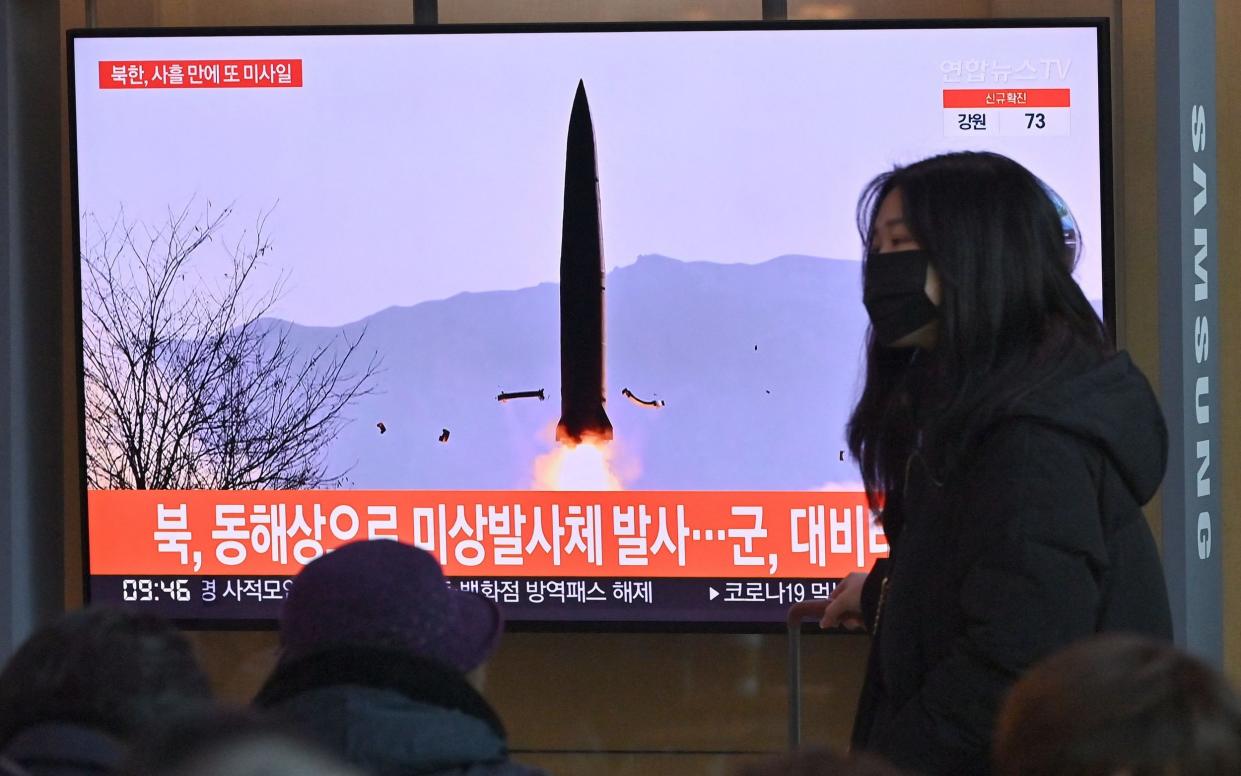North Korea test fires fourth missile this year, says Seoul and Japan

North Korea fired at least one suspected ballistic missile into the sea on Monday in its fourth weapons launch this month, officials in South Korea and Japan said, with the apparent goal of demonstrating its military might amid paused diplomacy with the United States and pandemic border closures.
South Korea's Joint Chiefs of Staff did not immediately say whether the projectile was ballistic or how far it flew. Japan's Prime Minister's Office said it detected a possible ballistic missile launch from North Korea, but didn't immediately provide more details.
Japan's Coast Guard issued a statement urging vessels travelling around the Japanese coast to watch out for falling objects but no immediate damage to vessels or aircraft were reported.
The launch came after the North conducted a pair of flight tests of a purported hypersonic missile on Jan 5 and Jan 11 and also test-fired ballistic missiles from a train on Friday in an apparent reprisal over fresh sanctions imposed by the Biden administration last week for its continuing test launches.
North Korea has been ramping up tests in recent months of new missiles designed to overwhelm missile defenses in the region.
Some experts say North Korean leader Kim Jong Un is going back to a tried-and-true technique of pressuring the US and regional neighbors with missile launches and outrageous threats before offering negotiations meant to extract concessions.
A US-led diplomatic push aimed at convincing North Korea to abandon its nuclear weapons program collapsed in 2019 after the Trump administration rejected the North's demands for major sanctions relief in exchange for a partial surrender of its nuclear capabilities.
Mr Kim has since pledged to further expand a nuclear arsenal he clearly sees as his strongest guarantee of survival, despite the country's economy suffering major setbacks amid pandemic-related border closures and persistent US-led sanctions.
His government has so far rejected the Biden administration's call to resume dialogue without preconditions, saying that Washington must first abandon its "hostile policy," a term Pyongyang mainly uses to describe sanctions and combined US-South Korea military exercises.

